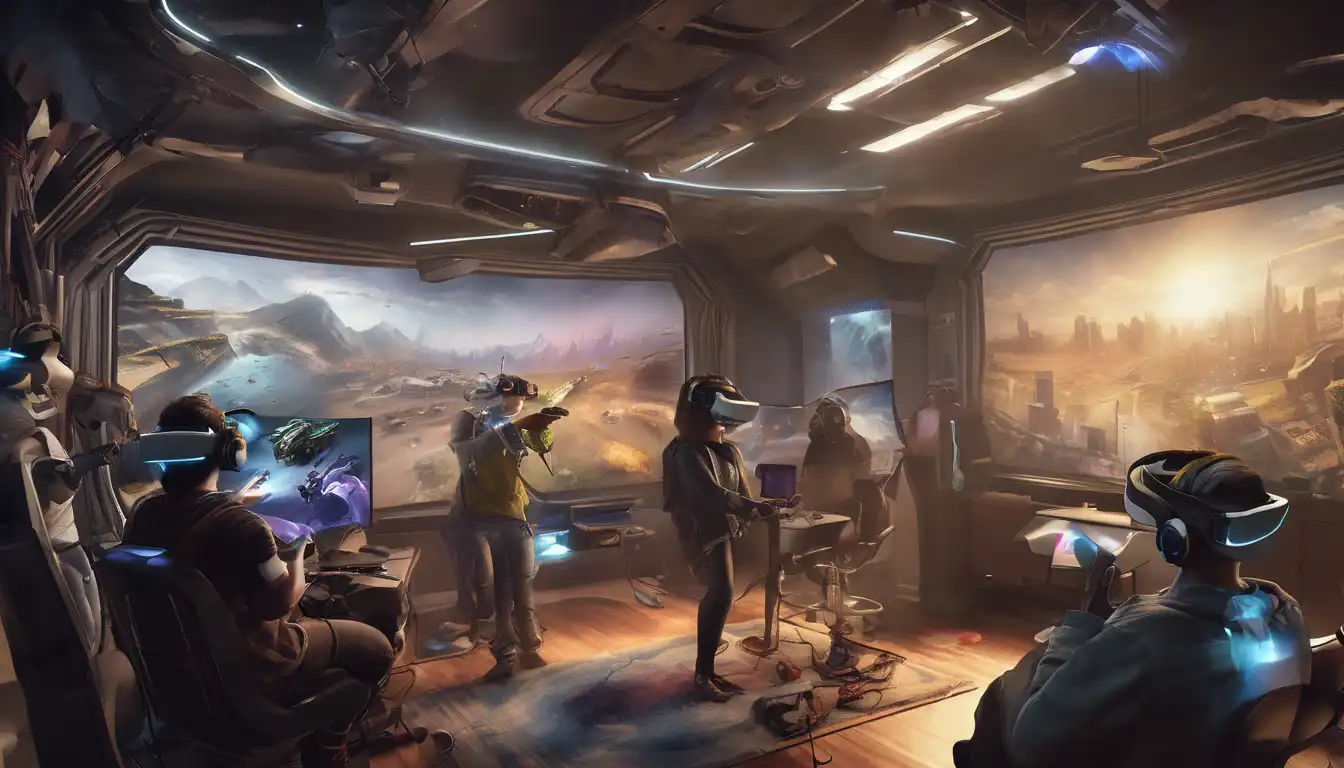The Revolutionary Impact of Virtual Reality on Gaming
Virtual Reality (VR) has emerged as a groundbreaking technology that is reshaping the gaming industry in unprecedented ways. By offering immersive experiences that were once the stuff of science fiction, VR is setting new standards for what gamers expect from their entertainment. This article explores the transformative effects of VR on gaming, from enhanced player engagement to the creation of entirely new genres.
Immersive Gaming Experiences
One of the most significant contributions of VR to the gaming industry is the level of immersion it offers. Players are no longer mere spectators but active participants in virtual worlds. This immersion is achieved through advanced VR headsets and motion-tracking technology, which together create a sense of presence within the game. Titles like Half-Life: Alyx have demonstrated the potential of VR to deliver deeply engaging narratives and gameplay mechanics that are impossible in traditional gaming formats.
New Genres and Gameplay Mechanics
VR has also led to the birth of new gaming genres and the evolution of existing ones. Puzzle games, for instance, have taken on a new dimension with VR, requiring players to interact with the environment in intuitive ways. Similarly, horror games have become more intense, as VR's immersive nature amplifies the fear factor. Developers are continually experimenting with VR to push the boundaries of creativity and innovation in game design.
Enhanced Social Interactions
Another area where VR is making waves is in social gaming. Platforms like VRChat allow players to interact in virtual spaces, offering a new form of social connectivity. These virtual gatherings are not just about playing games but also about building communities, sharing experiences, and even attending virtual events. This social aspect of VR gaming is fostering a sense of belonging among players worldwide.
The Future of VR in Gaming
As VR technology continues to evolve, its impact on the gaming industry is expected to grow even further. With advancements in hardware, such as lighter and more comfortable headsets, and software, including more sophisticated AI and graphics, the future of VR gaming looks bright. Moreover, the integration of VR with other technologies, such as augmented reality (AR) and artificial intelligence (AI), promises to unlock even more possibilities for immersive gaming experiences.
In conclusion, VR is not just transforming the gaming industry; it's redefining what games can be. From immersive storytelling to innovative gameplay mechanics and social interactions, VR is at the forefront of gaming's future. As developers and players alike embrace this technology, we can expect to see even more groundbreaking advancements in the years to come.
